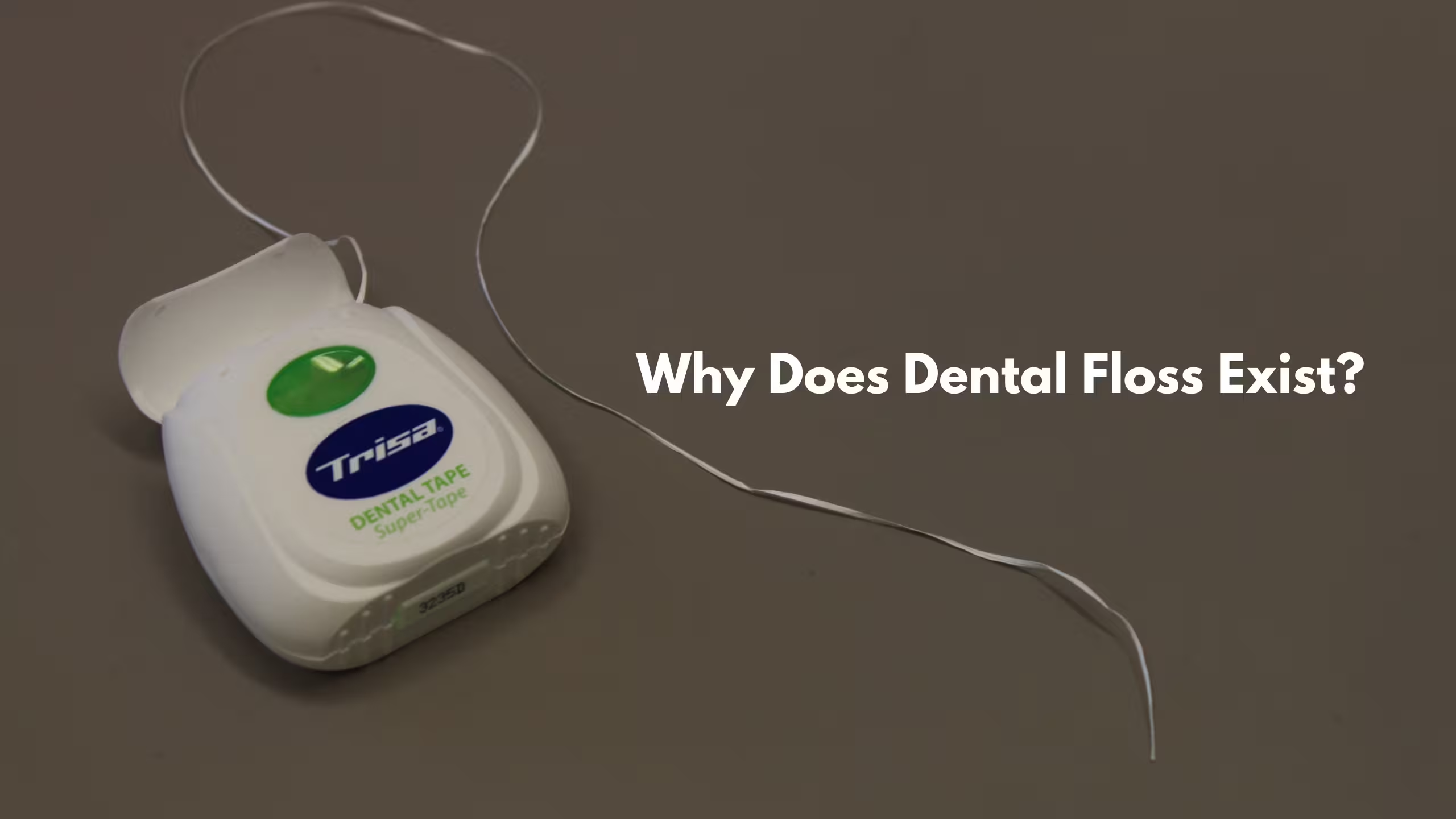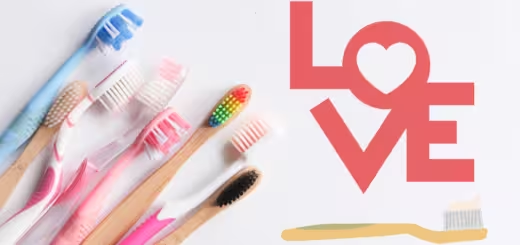Why Dental Floss Matters: The Secrets Dentists Want You to Know!

Ah, dental floss—the tiny, mint-flavored string that haunts us from the back of the bathroom cabinet. It’s there, silently judging us as we brush our teeth with gusto, pretending that somehow, brushing alone will prevent the guilt-laden conversation at the dentist’s office:
Dentist: “So, are you flossing regularly?” You: “Uh…yeah, sure! Totally… every day.”
We all know that dental floss is important, but seriously, why does it exist? And why do dentists insist on reminding us to use it like we’re disobedient toddlers who just can’t figure out that vegetables are good for us? Let’s explore the mysterious world of dental floss, why we should probably start using it, and how to make peace with this tiny string that somehow holds the key to our oral health.
The Origins of Dental Floss: Who Came Up with This?
You might think dental floss is a modern invention, dreamed up by some overzealous dentist to add another layer of complexity to our already-busy lives. But nope—dental floss has actually been around for a while. The concept of cleaning between teeth dates back to prehistoric times, when our ancestors used whatever they had handy (think twigs, feathers, or hair) to get rid of food stuck in their teeth.
In 1819, a New Orleans dentist named Levi Spear Parmly suggested that people should use waxed silk thread to clean between their teeth. Fast forward to the 1940s, and dental floss as we know it today—made from nylon—became a staple in oral hygiene. And thus, the floss guilt began.
Why Do Dentists Love Flossing So Much?
You’d think dentists invented dental floss, given how much they push it on us. The truth is, dentists harp on flossing because it genuinely does wonders for our teeth and gums. Here’s why they won’t shut up about it:
1. Flossing Cleans Where Brushing Can’t
Your toothbrush is great for cleaning the surfaces of your teeth, but it can’t reach the tight spaces between them. Floss gets in there, removing food particles and plaque that would otherwise just hang out, waiting to cause trouble.
2. Flossing Prevents Gum Disease
Gum disease starts with plaque buildup around the gum line, which can lead to inflammation, bleeding, and, in severe cases, tooth loss. By flossing regularly, you remove plaque before it has a chance to turn into a problem, keeping your gums healthy and your smile intact.
3. Flossing Reduces Bad Breath
Nobody wants to be the person with bad breath, but if you’re skipping the floss, you might be harboring little bits of food between your teeth. These food particles break down, and guess what? They smell. Flossing helps keep your breath fresh by removing those stink bombs before they turn into an oral disaster.
The Great Floss Debate: Why Don’t We Do It?
If flossing is so great, why don’t more of us do it? After all, it’s not like flossing takes a lot of time—it’s a quick, simple task. So why do we avoid it like it’s a gym membership we signed up for but never use?
1. It’s a Hassle
Let’s be real—flossing feels like an extra step in an already crowded morning or bedtime routine. We’re busy people! We’ve got emails to check, Netflix shows to binge, and social media posts to like. Who has time to spend two extra minutes fiddling with a piece of string? And yet, those two minutes could save us hours of dental work (and thousands of dollars) down the road.
2. It Can Be Uncomfortable
For some people, flossing feels awkward or even painful. Maybe your gums are sensitive, or maybe you’ve just never quite mastered the technique. The truth is, like anything, flossing gets easier the more you do it. And if you find it painful, that might be a sign that your gums aren’t as healthy as they could be—which is all the more reason to keep flossing.
3. We Don’t See Immediate Results
One of the biggest reasons we skip flossing is because it doesn’t give us the same instant gratification as brushing. After brushing, your teeth feel clean, your breath is fresh, and you can immediately tell that you’ve done something good for your mouth. Flossing, on the other hand, feels like a thankless task. You don’t see a big difference right away, so it’s easy to convince yourself that it’s not doing anything.
How to Actually Start Flossing (And Stick With It)
Now that we’ve established why flossing is important and why we don’t do it, let’s talk about how to turn flossing from a dreaded chore into a regular part of your routine. Here are a few tips to make flossing less painful—both physically and mentally:
1. Start Small
If you’re not a regular flosser, don’t try to go from zero to hero overnight. Start by flossing a couple of times a week, and gradually work your way up to daily flossing. Even a little bit of flossing is better than none, so don’t beat yourself up if you’re not perfect right away.
2. Find Floss You Like
Not all floss is created equal. Some people prefer waxed floss because it slides between teeth more easily, while others like floss picks or water flossers because they’re easier to handle. Experiment with different types of floss until you find one that works for you. And if you’re really committed, go for the mint-flavored floss to keep things fresh.
3. Floss While You’re Distracted
If you hate standing in front of the mirror and flossing, try doing it while you’re watching TV or scrolling through your phone. You don’t need to be 100% focused to floss effectively, so why not multitask? Before you know it, you’ll be flossing without even thinking about it.
4. Reward Yourself
Let’s be honest—flossing doesn’t have the same appeal as eating a piece of cake or buying a new pair of shoes. But you can make it more enjoyable by rewarding yourself for sticking with it. Keep a calendar and give yourself a gold star for every day you floss. At the end of the month, treat yourself to something you enjoy, whether it’s a night out, a new book, or a guilt-free Netflix binge.
Flossing Might Be Annoying, But It’s Worth It
At the end of the day, flossing is one of those things we all know we should do but don’t want to do. It’s like eating vegetables or doing your taxes—unpleasant, but ultimately good for you. And just like eating veggies, once you get into the habit, it becomes easier and less of a hassle.
So the next time your dentist gives you that look and asks about your flossing habits, you can answer with confidence: “Yes, I’m flossing!” (Or at least, you’re trying.)
Remember, flossing isn’t just about preventing cavities—it’s about keeping your entire mouth healthy, fresh, and happy. Plus, it might just save you from a few awkward trips to the dentist.


